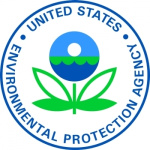- Industry: Government
- Number of terms: 11955
- Number of blossaries: 0
- Company Profile:
U.S. Environmental Protection Agency (EPA) is a federal agency responsible for the development and enforcement of regulations for human health and environment protection. The agency researches and sets standards for environmental programs and delegates. It was founded in 1970 following the proposal ...
Raw material supplied to a machine or processing plant from which other products can be made. For example, polyvinyl chloride and polyethylene are raw chemicals used to produce plastic tiles, mats, fenders, cushions, and traffic cones.
Industry:Agricultural chemicals
Describes any material that can be ignited easily and that will burn rapidly.
Industry:Agricultural chemicals
The lowest temperature at which evaporation of a substance produces enough vapor to form an ignitable mixture with air.
Industry:Agricultural chemicals
Mostly level land along rivers and streams that may be submerged by floodwater. A 100-year floodplain is an area which can be expected to flood once in every 100 years.
Industry:Agricultural chemicals
Air pollutants released to the air other than those from stacks or vents; typically small releases from leaks in plant equipment such as valves, pump seals, flanges, sampling connections, etc.
Industry:Agricultural chemicals
Produce gas or vapor intended to destroy pests in the house or in the ground
Industry:Agricultural chemicals
A pesticide used to control or destroy fungi on food or grain crops.
Industry:Agricultural chemicals
Funguses, or fungi, are types of plants that have no leaves, flowers or roots. Both words, funguses and fungi, are the plural of fungus.
Industry:Agricultural chemicals
Food waste (animal and vegetable) resulting from the handling, storage, packaging, sale, preparation, cooking, and serving of foods.
Industry:Agricultural chemicals
